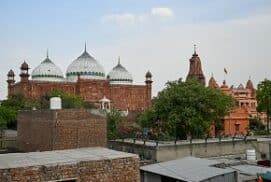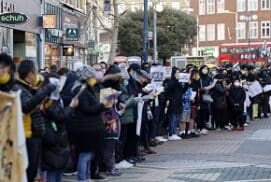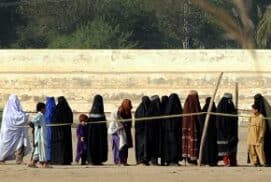The Waqf (Amendment) Bill, 2024, alongside the proposed Uniform Civil Code, underscores the Narendra Modi government’s broader plan to reshape the sociopolitical landscape, particularly that of the country’s Muslim community. While the UCC has been a long-standing agenda of the Hindu Right – along with the Ram temple in Ayodhya and the abolition of Article 370 – it represents a more recent and potentially far-reaching intervention. Together, these legislative moves appear to be part of a concerted effort to realign the rights and identities of minority communities in accordance with a majoritarian vision.
Analyses
Asia
- Maria Tavernini 8 May 2025India’s army launched “Operation Sindoor,” firing a series of missiles at nine locations described by New Delhi as “terrorist infrastructure” inside Pakistan territory and Pakistan-administered Kashmir. The strikes – which killed 31 people, including women and children, and injured 46 others – triggered a swift response from Islamabad, which condemned the attack as an “act of war” and vowed a “befitting reply.” Pakistan claims the missiles targeted civilian sites, including two mosques, and says it downed five Indian planes in its counterattack. Indian sources report that at least 11 people were killed in Pakistan’s retaliation.
- Maria Tavernini 30 April 2025Despite a reduced majority in Parliament, India’s ruling Bharatiya Janata Party (BJP) has pushed through a contentious amendment that has dealt another blow to multireligious India and enraged the Muslim community. In early April, after a heated debate, lawmakers passed a controversial bill reshaping how Muslim-donated properties – known as waqf – are governed, triggering protests and fierce political opposition. After its introduction, All India Majlis-e-Ittehadul Muslimeen (AIMIM) chief Asaduddin Owaisi tore up a copy of the bill in the Lok Sabha.
- Kristina Kironska 29 April 2025The earthquake hit at the worst possible time. Myanmar has been locked in civil war since the military coup of 2021, with resistance groups fighting for freedom. Even before the disaster, more than 3.5 million people were already displaced, and nearly a third of the population depended on humanitarian assistance. That aid was already tightly controlled by the junta, with many areas completely cut off due to military restrictions and ongoing violence.
- Chandra Mallampalli 16 January 2025January 6 marks the fourth anniversary of an unprecedented attack on the United States Capitol and American democracy. Far more than advancing “the lie” about a stolen 2020 election, the insurrectionists of January 6 presented the world with an alternative understanding of America, one arising from fears of white replacement and steeped in Christian nationalist ideas and imagery. Despite being the only twice impeached U.S. president and a convicted felon, Donald Trump not only won the last election, but also gained majorities in both the Senate and the House and made inroads into Asian, Black, and Latino American communities that typically vote Democrat. These facts should prompt us to reframe January 6 not as a shameful setback for MAGA, but as a catalyst for the movement’s onward march. To what kind of America will Trump 2.0 take us? This is where a comparative lens can be useful.
- Abhijan Choudhury 16 December 2024The controversial “survey” of a mosque in the small north Indian town of Sambhal, in the state of Uttar Pradesh, sparked violent protests last month, leaving at least five people dead. The incident reignited the age-old debate over the need to “correct mistakes” committed centuries ago and their impact on social harmony and peace in contemporary India.
- Owen Au 3 December 2024Hong Kong, once a vibrant city celebrated as an international financial hub, is now witnessing a significant new wave of mass exodus. While official data on the scale of this migration is unavailable, estimates suggest that between 200,000 and 500,000 people have left the city over the past few years. Hong Kong has long been familiar with migration; cross-border employment and split families are nothing new to Hongkongers. However, the mass migration taking place is still something worth a glance at – not only because of the factors driving it but also because, for the first time, it has created a Hong Kong diaspora.
- Iqra Khan 21 November 2024“I just hope that both of my children are returned to their tribe,” says Masta Bibi, a partially blind Pashtun woman in her seventies. Originally from Mirali in North Waziristan, Pakistan, she is the mother of two missing sons: Bilal, who disappeared 11 years ago, and Ihtesham, who vanished two years ago. Her home was destroyed during a military operation targeting terrorist groups that sought refuge in the ex-FATA region after September 11, 2001. Despite her frailty, she attended the Pashtun Qaumi Jirga, held from October 11 to 13 in Jamrud, Khyber, with a lingering hope for justice.
- Maria Tavernini 19 November 2024The sweeping majority secured by Sri Lankan President Anura Kumara Dissanayake’s leftist coalition in the snap parliamentary election on November 14 marks a major shift in the country’s electoral landscape. Cutting across ethnic and religious differences, Sri Lankans swept the National People’s Power (NPP) front to a landslide victory, granting Dissanayake’s alliance a total of 141 seats out of 225.
- Raul Kumar 14 November 2024On October 20, 2024, tensions erupted in Jammu, Kashmir, when accusations of cow smuggling triggered a violent clash, part of an escalating wave of Gau Rakshak (cow protection vigilante) aggression across India. Under Prime Minister Modi’s third term, commonly known as “Modi 3.0,” these self-styled cow protectors have become increasingly emboldened, often targeting marginalized groups – particularly Muslims and Dalits involved in the livestock trade. Modi 3.0 has seen a noticeable rise in such incidents, with vigilante groups frequently operating with implicit political backing as they enforce cultural and religious norms around cow protection.











